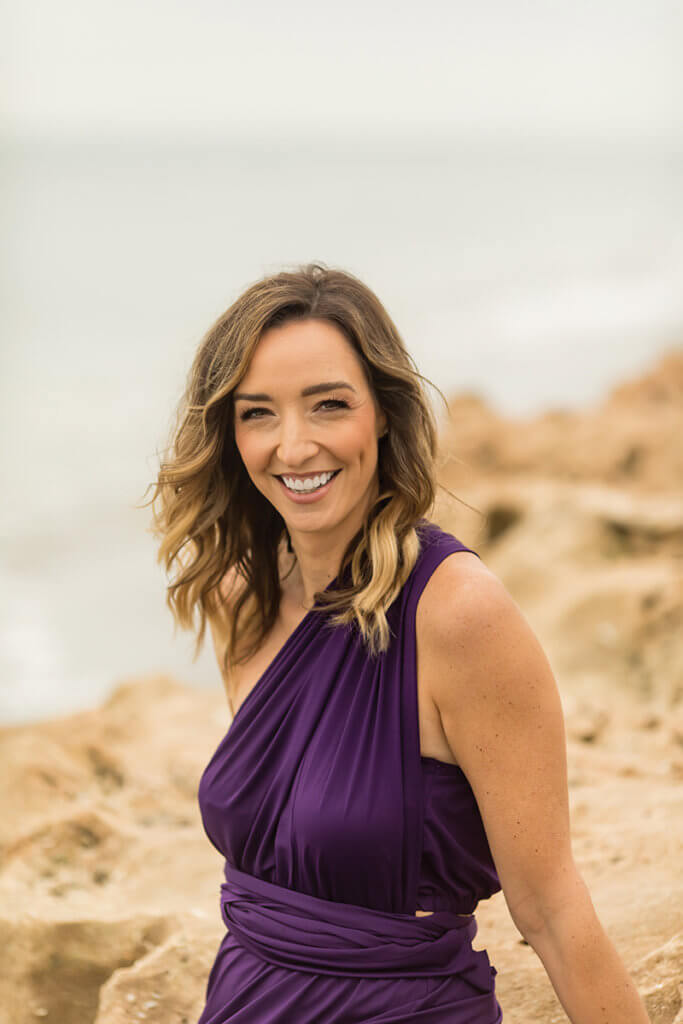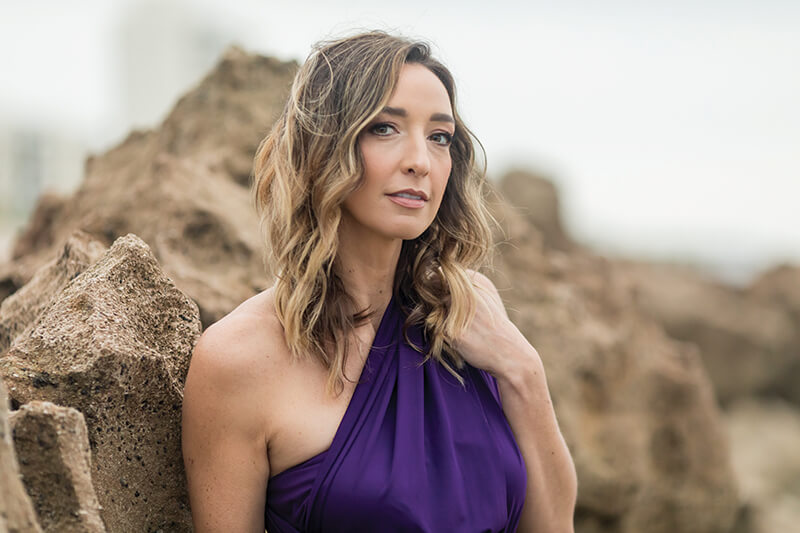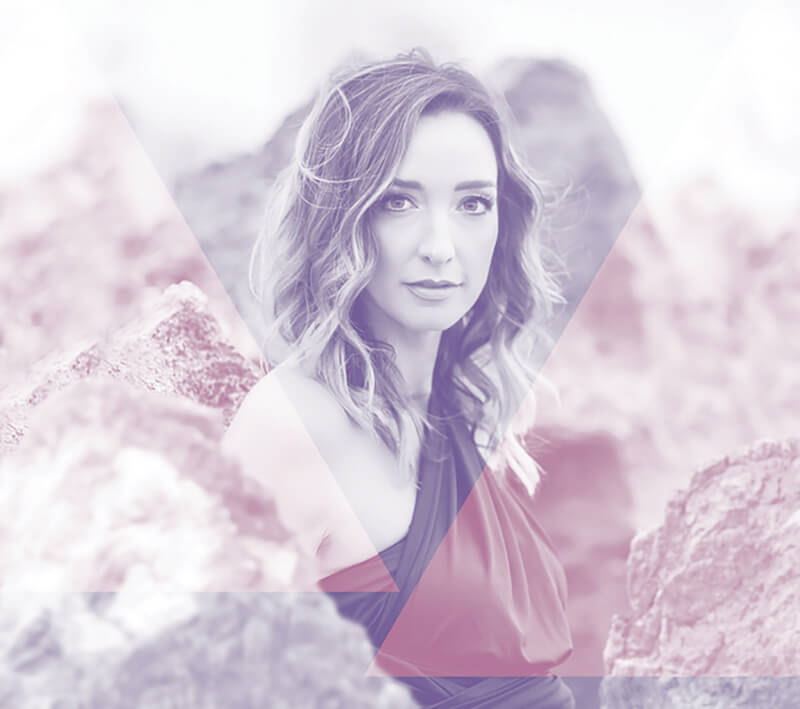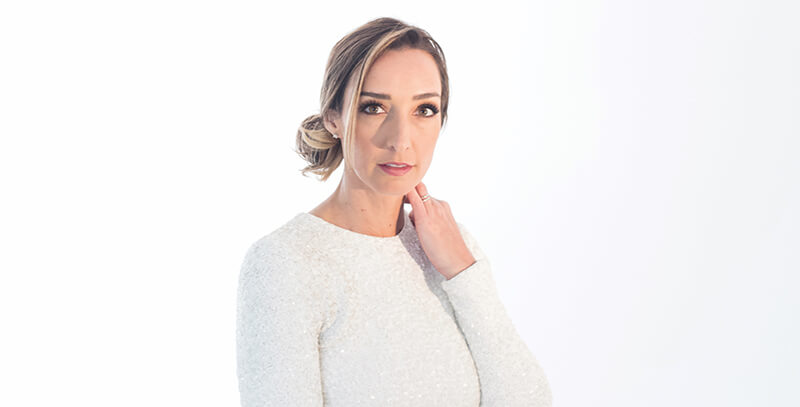Originally hailing from the Philadelphia area and now a full-blown Nashville artist, Jenn Bostic fuses Christian, Country and a bit of singer/songwriter pop into a sound all her own. We recently had the pleasure of working with her on a number of video projects, including some for Mojave Audio as well as Elixir Strings. And it was during the latter project where we had an opportunity to chat further with Bostic about her career, her musical journey, and the joys of (soon-to-be) motherhood.
Can you give us a sense of how everything started for you, musically?
Yeah, so I was born in Philly. I don’t really remember any of that, so I always claim Minnesota as home [laughs]. I grew up in a small town called Waconia, MN which is about 30 miles west of Minneapolis and my parents were both big supporters of the arts. My mom loved musical theater and all things glitz and glamour and my dad did some songwriting when my parents were dating.
He would send songs instead of love letters to my mom…
Please tell me you have some of those songs!
I do, yeah. We have a little recording of him; it’s really cool. It was definitely always just something they both were passionate about and wanted my brother and I to both at least learn about. And my dad was always putting an instrument in our hands — it was just always kind of an environment of creativity and then exposing us to different shows, whether that be a Broadway show or I remember they took us to see Garth Brooks back in the day.
My parents just tried to make it really accessible.
Did you do music lessons or music at church or anything growing up?
Yeah, I remember doing some of the kids programs at church and when I got into college, I was finally in a gospel choir. I took piano lessons from the time I was six, I believe, but I was very involved in sports in high school, so I sadly quit and had to reteach myself in college — which I always regret, but maybe I needed a break from it for a little while.
I was in all of the things in high school — I mean the show choir, the marching band, jazz band, women’s chorus, all those things. But that kind of transition…that’s where I took music more seriously.
Let’s talk about your “a-ha” moment – when do you decide that music is going to be a career?
I would say it was somewhere between 10 and 12, honestly. I unfortunately lost my dad in a car accident when I was 10 and so songwriting was just therapy for me — I didn’t even realize that songwriting was a career or even anything I could follow. I thought that all the artists on the radio wrote their own songs, you know? So, I was just sitting down at the piano to get those feelings out. I couldn’t really talk about what happened with a counselor or anything. For some reason, music was the thing that allowed me to express it all, and of course my dad had been such an influence in getting me excited about music.
I just felt close to him whenever I was playing piano or singing, so that feeling of wholeness that music brought me, I really just wanted to experience more and more of it, so I threw myself into everything musical.
I ended up going off to Berklee to study music education. I’ve always loved working with kids, and I still do songwriting workshops whenever I go out, or I’ll try to find a couple high schools or middle schools that are interested in that. I felt like music had really provided this outlet for me and that I could help kids find that that [as well]. I didn’t really have the confidence to be a performer. Again, it was kind of like, oh, I’m just a small-town girl, but it’d be really fun to study at a contemporary music school like Berklee, you know, and [go through] their program. I felt like Berklee was going to pull the strengths that I had and bring that into the classroom if I were [going to teach]. I was [just] anxious to get out a small town I wanted to go to a big city like Boston.
So, you go to Berklee to be a music educator, but something must have happened in the interim. Did you gravitate more towards performance or songwriting at some point?
I actually did graduate with a degree in music education but there was always that little feeling in my gut that was like if I don’t even attempt to perform, I’ll probably regret it the rest of my life and I was [only] a sophomore.
My mom was always really encouraging me to just audition for everything…It’s good for you to, you know, get those nerves out…
[Eventually] I found friendships in a country music ensemble and a couple of the guys that were in the band were like, ‘We’re really looking for a singer, we like your voice. Would you want to come audition for this?’ And, you know, you’re trying to figure everything out at the beginning stages of your college career, so I joined the country ensemble, made friends there so I was gravitating towards country music…when you’re in the lights of a huge production, you want to do that again. It starts to feed that desire, so you get the bug for it.
It started to build my confidence a little bit and by my sophomore year I auditioned for a country rock cover band. And that was kind of my intro to touring — it was all weekends, so it was really like I was a Weekend Warrior.

©Sara Kauss Photography 2022
Yeah, the cover band stuff can be grueling, definitely.
Oh my gosh, so that was a huge shock to me, but I loved every second of it, you know?
I was singing anything from Carrie Underwood to Journey to AC/DC to Miranda Lambert. It was all over the map and I feel like that kind of reintroduced songwriting to me because I was singing these hits every single weekend and I was like, ‘Oh, I see how the structure of song works. I see what they do in the verse…I see where the chorus lifts…
Were you still heavily involved with songwriting at that time, or was that kind of just bubbling to the surface because you were hearing so much chart-topping music?
It was more so the latter.
I had written a few songs, like right when my dad passed away and then a few songs here and there that I would play at coffee shops. When I went back to Minnesota, I had, you know, maybe 10 songs from the time I was 10 to the time I was 20. And then when my production major friends were needing to do projects, they need someone to sing. So, I had the opportunity to record my own songs.
I kind of had to re-teach myself to be able to write…

©Sara Kauss Photography 2022
So, when is there a point that comes where you’re like, ‘OK, I’m gonna be Jenn Bostic the artist. I’m gonna go do it and really make a go of it’?
The last day of my student teaching. I don’t really know what happened…
I mean, I think over time I started to kind of lean that way and think, ‘What would this look like?’ and started to just kind of dream about it. After I graduated, everything in my heart was like, ‘You have to try to be an artist now — you have to give this a go.’
So, from there, where does the career branch off to?
The guitar player that had gotten me to audition for that cover band moved to Nashville a couple years prior. He was older than I was, and he was interning at Starstruck Studios. He’d been like a big brother to me throughout college, and I had reached out to him to just say, ‘Hey, I want to record a country album. I have a couple of songs…’
When you get to Nashville, one of the first things you learn is that none of the stuff you thought was good, is good [laughs].
He was very kind, and he came back, and he said, ‘Look I would love to produce a record for you, and we can work within your budget. However, these songs are not ready. We need to start from scratch and write the album, so if you’re willing to be patient, we’ll write all the songs together.’ So, I moved to Nashville, did a lot of substitute teaching and line dance instruction and all these odd jobs to pay rent.
It would have been really easy to go start a cover band and not push myself to write because you’re going to be so exhausted from singing these two- or four-hour gigs in a row. And I just kind of told myself that I wasn’t going to do the cover band thing when I got to Nashville.

That’s smart.
I kind of got it out of my system [already]. And so he and I wrote, my goodness, probably three days a week for six months until we had 12 good songs. It was a lot of writing, but until we had enough songs that we felt like were worth recording, you know worth investing in, we weren’t going into the studio with the session players he had.
I felt really grateful because he had all those connections. We recorded those 12 songs and then did overdubs at his house. The whole process was maybe about six months, but then we had this CD and I wanted to go on tour — whatever that meant — but there was nobody knocking on my door to book me a tour, so I knew the places I could sleep for free — places where I had friends and I kind of routed [shows] around that.
It’s a good way to start, especially when you’re doing the DIY booking thing…
Yeah, for sure. So, I just started picking up the phone and calling these random coffee shops that I had Googled and said, ‘Hey can I come do a show?’ and if they were hesitant, I was like, ‘Look, I’ll play for tips and food, can I just come?’ I couldn’t afford to pay guitarists to come on the road with me, so I muscled through those piano chords to try to play for myself — I’m glad I did it because it forced me to get better.
But those first couple tours were pretty rough…
I’d be interested in learning maybe a little bit more about your creative process.
I love the co-writing thing. I do write on my own a lot; I feel like there’s some songs that are just so close to you and that the idea comes out so fast that you just have to write it yourself.
But I am the first person to say that my strengths lie in certain areas and when I get a chance to write with somebody who can play circles around me, let’s go ahead and take it somewhere I never would have taken it. Collaboration and teamwork in music is so important.

©Sara Kauss Photography 2022
Now you’re still in Nashville, correct?
Yeah, I’ve been here for 14 years.
And you’ve got new material coming, too.
Looking back on it now, two years later, the timing of [COVID]…we’ve made the most of what we could, you know with the [new] project, and we had already recorded a new version of my song “Jealous of the Angels” — I had a hit with it in England and I’ve been performing it live with a tag of “Amazing Grace” on the end of it and. I wanted to record it that way; this album is a Christian album about my faith, and it felt like a huge part of my testimony that was missing.
So, we had a chance to re-record it, which to me it feels so different because it came from such a different place — the first time we recorded it, I was still so broken and healing from everything that happened in losing my dad — so 10 years later to record that song [again] was like a totally [new] experience. I had remembered all the stories that people had shared about how this song had brought them comfort during their time of loss, so that was really special.
And in February of 2021, it was actually the 25th anniversary of my dad’s passing, so we released the new version that day, but that was never part of the plan. It was just something that worked out that way.
I know with the new record comes a new addition to the family as well, congratulations are in order, I believe…
Thank you! [My husband and I] had those conversations probably daily because we’re at that age where it’s like, ‘Well, have kids or don’t.’ So, this is our first [child]. We’re excited; I guess they’re probably the greatest conversations that we probably wouldn’t have had if COVID hadn’t stopped us in our lives.
What’s the plan after the record comes out?
I actually leave tomorrow for a seven-date tour and then I pause and come home and then I’ll head back out. It’s kind of a whole summer of touring to get this these songs out there; I’m so ready and so excited. I want to get out there and play!
Photos by Sara Kauss
